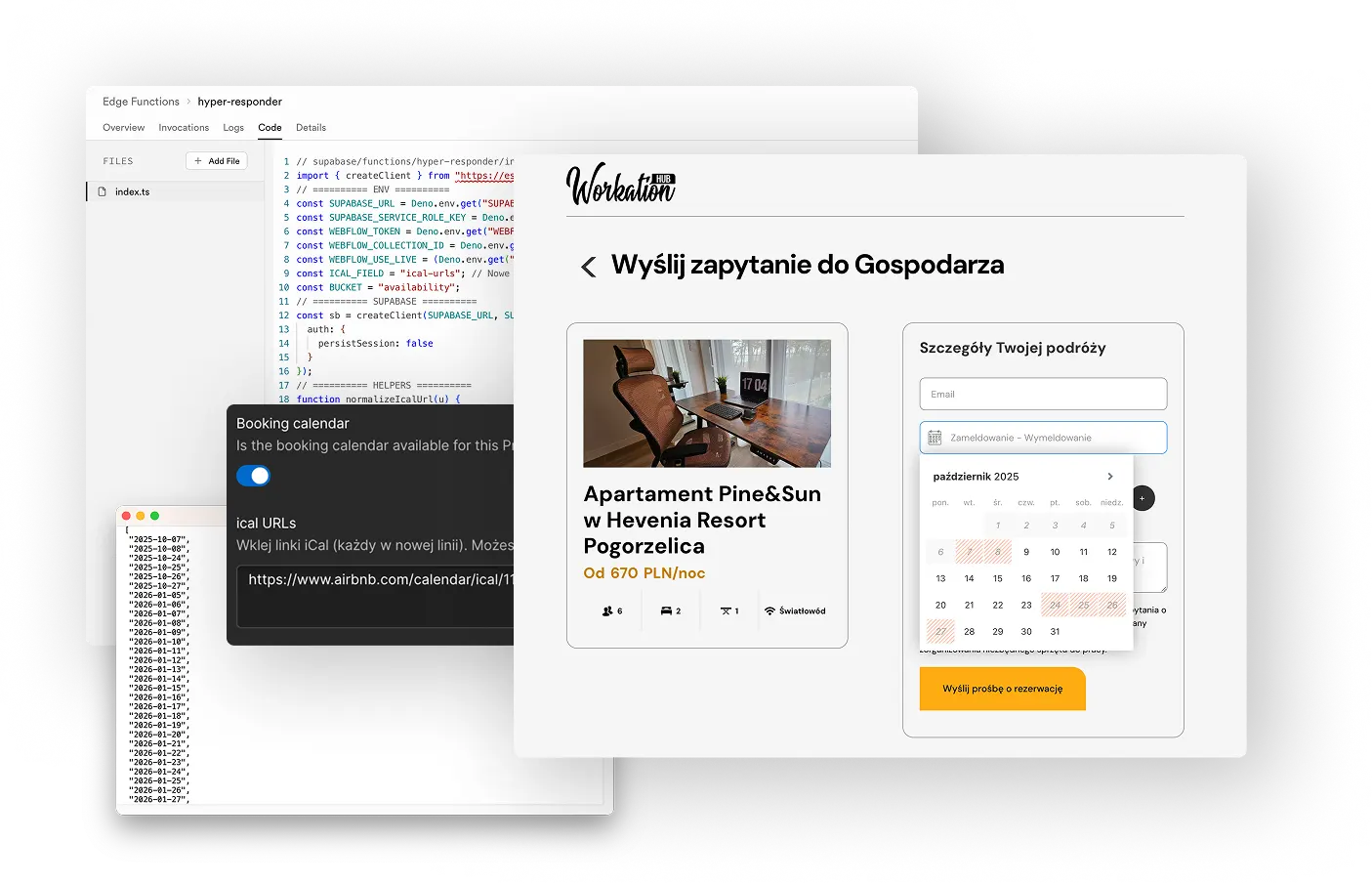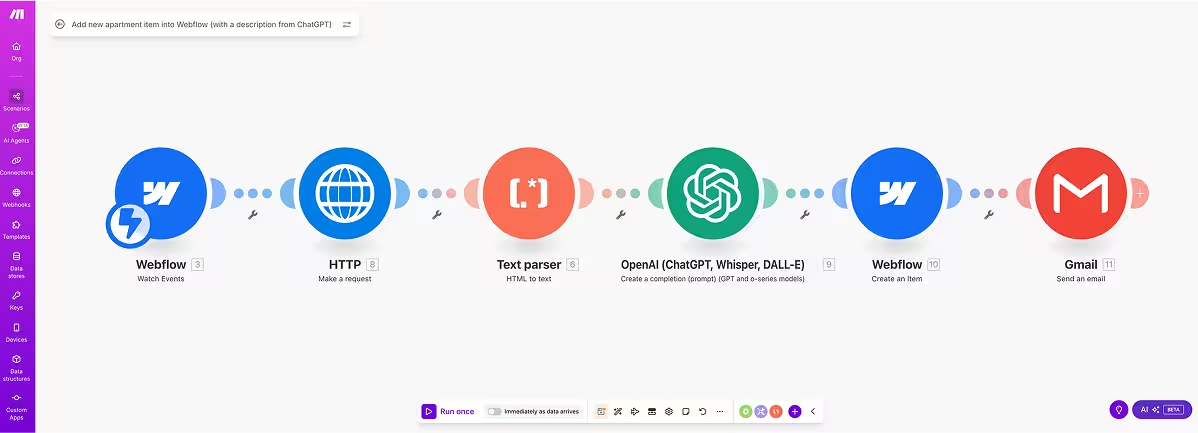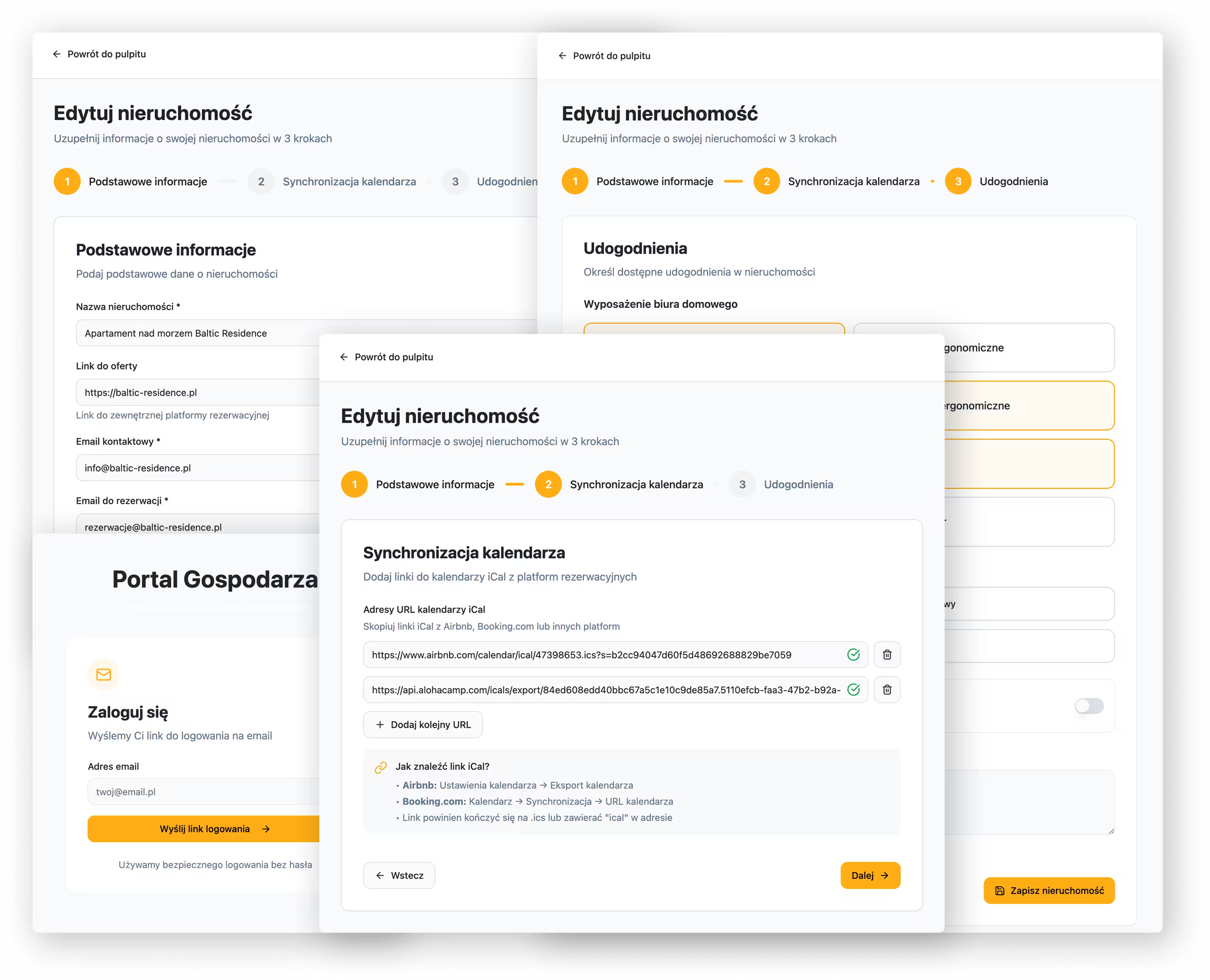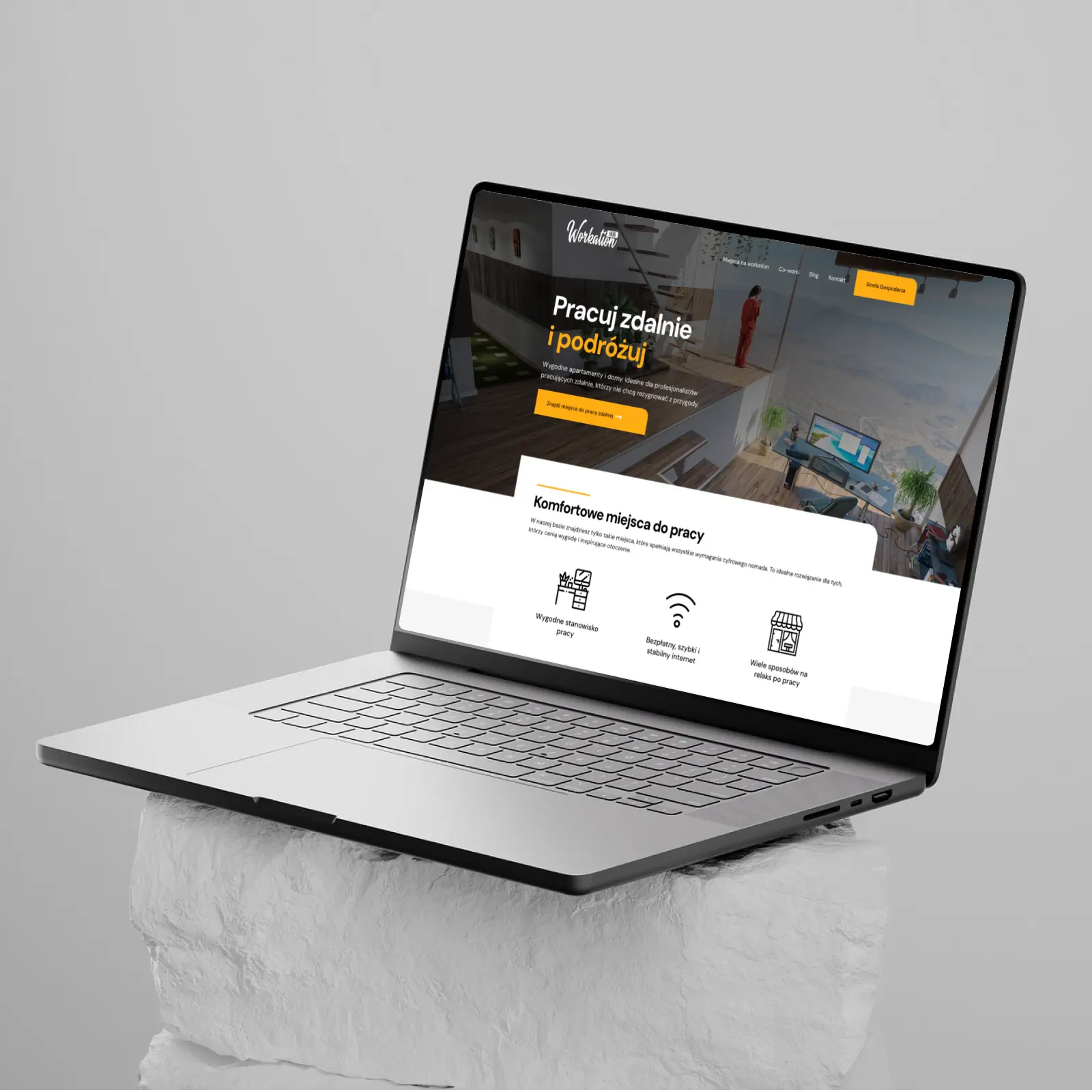Project Overview
WorkationHub is for digital nomads and remote teams who need a place that’s truly work-ready: fast, reliable internet, a real desk setup. We curate stays that actually deliver a solid work environment and offers discounts for longer stays.
Problems
Guest
- Work-readiness unclear: Internet speed, ping, desk/chair/monitor, and even basics like a coffee maker aren’t surfaced clearly on other platforms.
- Trust gap: Photos and descriptions often overpromise; travelers want verified work amenities and measured internet, not marketing copy.
- Long-stay pricing: Longer stays are expensive or opaque—hard to plan a month+ without clear discounts.
Host
- Duplicate effort: They’ve already written the listing on Airbnb/Booking/their site—rewriting it again is wasted time.
- Double data entry: Calendar availability is managed in Airbnb/Booking; clicking blocked dates in yet another tool feels redundant.
Business
- Time & errors: Manual updates to content and calendars create delays and mistakes.
- Inconsistent listings: Variable length/tone and missing essentials look unprofessional and increase drop-off.
- Cost sensitivity: We need low-cost, lightweight solutions while validating the model (no heavy rebuilds or lock-in).
Solutions
Guest
- Work-ready by default: Listings surface measured internet (speed & ping) and standardized work amenities (desk/chair/monitor, coffee maker) at the top. (Powered by AI copy standardization + amenity tagging.)
- Clear long-stay pricing: Month-friendly rates and discounts are shown up front, with an option to request custom stays.
Host
- No rewriting: Paste a few URLs (website, Airbnb/Booking, socials) and get a clean, on-brand draft ready for review. (Scraping → Custom GPT → Webflow draft.)
- No double entry: Keep managing calendar availability in Airbnb/Booking—our sync consumes those iCals and updates the site automatically. (Daily cron + on-demand sync from the microsite.)
- Self-serve updates: A one-screen Host Update Microsite with magic-link login lets hosts validate new iCal links, trigger a sync, and update external URLs or discounts in minutes.
Business
- Near-zero manual ops: Calendars update without CMS publishes; content drafts arrive pre-formatted. (Edge Functions + Make orchestration.)
- Consistency at scale: AI content agent enforces tone, length, and amenity structure, so listings read the same—professional and scannable.
- Early warning, fewer incidents: Validation on submit (iCal test).
- Low-cost, low-lock-in stack: Webflow front + Supabase serverless + Make automation + selective GPT calls—cheap to run, easy to change.
Costs
Paid tools
- Webflow CMS - 20$/month + domain name
- Lovable - 20$ (one time payment to build a Client Portal)
- ChatGPT credits (APIs) -
Free tools: Supabase, Make (up to 2 scenarios), Easypick (calendar JS library)
Dynamic Calendar Availability Sync
Problems
Manual entry of booked dates into Webflow CMS was slow and error-prone, often stuck as drafts and requiring hand-publishing.
Goal
Users always see up-to-date availability across Airbnb, Booking.com, and other platforms—directly on the property page.
System Flow
- Trigger: Daily cron at 08:00 CET (and on-demand run)
- Fetch: Read each property’s iCal URLs from Webflow CMS
- Parse & Merge: Parse all feeds per property, merge & de-duplicate blocked dates
- Store: Write a lightweight JSON to Supabase Storage
- Apply on Frontend: Webflow page loads JSON and the Easepick calendar blocks unavailable dates client-side


Results
A clean date-range picker with disabled days matching external calendars—no visible lag, no manual updates.
Impact
- ~2 hours/week saved per property manager (no manual CMS updates or publishes).
- 100% consistency across platforms → reduced double-booking risk, smoother UX.
- Infinite scalability - adding another iCal source is zero-code (just paste the URL).
AI-generated Property Descriptions from External Links
Problems
Collecting copy from host websites and socials was manual, inconsistent, and slow. Content quality varied by editor, and draft creation in Webflow took too long.
Goal
Generate consistent, on-brand property descriptions, from a few URLs, ready as Webflow drafts in minutes.
System Flow
- Trigger: New host form submitted
- Fetch: Collect all submitted URLs
- Scrape & Clean: Extract readable text (remove nav/boilerplate, dedupe)
- Structure with custom GPT: Custom prompt outputs a strict JSON bundle (headlines, description)
- Publish Draft: Create a Webflow CMS item (draft, never auto-publish)
- Notify: Email alert with links to review

Results
Autogenerated descriptions: Submitted URLs become on-brand Webflow drafts — no manual copy/paste.
Editor is notified about new form submission, opens the Webflow item and finds a complete, neatly-formatted draft — ready for a 10-minute polish.
Impact
- Draft creation time: 120 min → 10 min
- Consistency: Unified voice via prompt guardrails + schema
Vibe-coded Host Management Microportal (in progress)
Problems
Calendar links (iCal) expired or changed, and ops had to chase hosts and update Webflow manually—slow, error-prone, and hard to track.
Goal
Give hosts a secure, single-screen portal to manage properties and calendars; validate feeds in real time, trigger syncs, and expose clear status—no passwords, no back-and-forth.
System Flow
- Auth: Supabase magic link (email-only).
- Dashboard: List host’s properties with sync status (last run, success/fail).
- Property form (multi-step):
- Basics: name, external link, contact/reservation emails
- Calendar sync: multiple iCal URLs, real-time validation, “Test feed” button
- Amenities: home office gear, internet type, discounts, message to admin
- Validate & Save: Only valid URLs are saved.
- Apply: Make triggers update-availability → writes availability/<slug>.json to Storage.
- Status & Alerts: Per-source timestamps, blocked-date counts, errors, manual “Sync now,” and email/Slack notification to admins.

Result
Hosts log in with a magic link, paste calendars, click Save & Validate, and immediately see per-source sync results - no manual CMS edits.

Impact
- Time saved: ad-hoc updates from hosts handled self-serve → 0 manual edits in CMS.
- Fewer incidents: expired/bad iCal caught at submit time (diagnostics + hints).
- Scales with hosts: adding properties or iCal sources requires no code changes.

